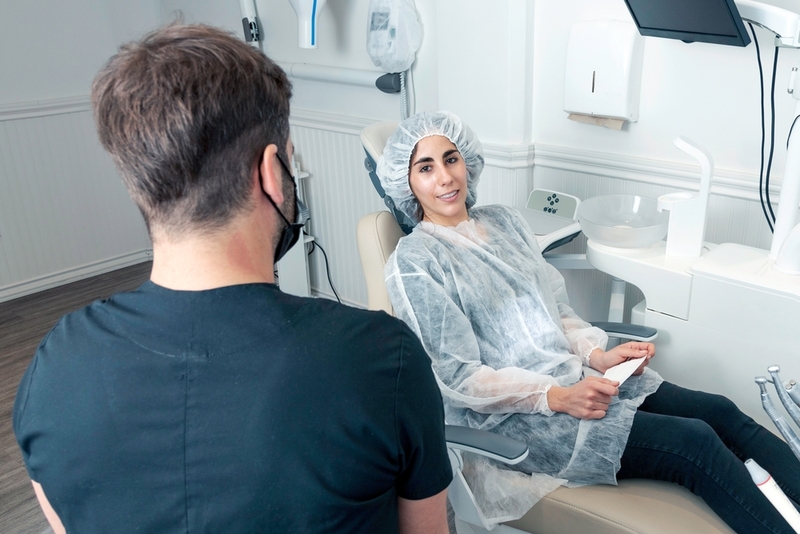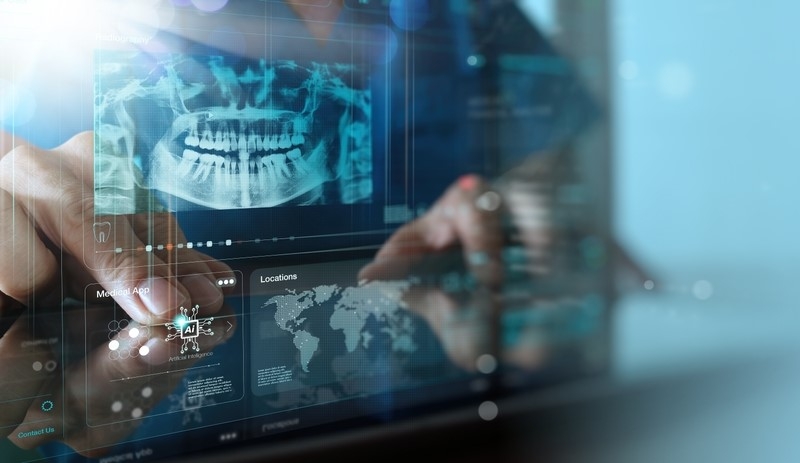The idea of robots taking care of our teeth is both exciting and terrifying all at once. While we’re not exactly there yet – AI is finding its way into more and more of our dental practices and in several different ways. Let’s take a look at some of the benefits that AI is bringing to the dental chair.

Using Virtual Dental Assistants
Fantastic multitaskers, AI-powered chatbots can instantly undertake all kinds of mundane administrative tasks, including patient inquiries, appointment scheduling, and billing. This automation ultimately lets the dentist focus on what is most important – giving the patient the highest quality care.
Introducing Robotic Systems
Surgeries can be complex at the best of times. This calls for extreme precision and attention to detail. With AI, robotic systems can help reduce errors and make procedures much more precise. While some might be skeptical about the overreliance on robots and what that could mean for human professions, dentists are learning to embrace this kind of tech.
Improving Remote Care
Not everyone lives close to a dentist. In fact, many people in need of dental care live in extremely remote areas, including the countryside. However, AI can help to provide these people with high-level patient care. Videoconferencing technology allows dentists to diagnose their patients remotely. While nothing can quite replace person-to-person contact, AI can go a long way to bridge the distance between dentist and patient.

More Accurate Diagnostics and Treatment
Listen, if a diagnosis is not accurate, then the mistreatment of a patient is more likely – which no dentist wants. AI systems can actually pinpoint details that the human eye might miss. According to a study, convolutional neural networks (CNNs) can detect tooth decay and crumbling with 92.5% accuracy.
Should We Be Worried?
While AI in dentistry is going to take time to perfect, dentists are right to be concerned about some of the potential pitfalls that might come. The high costs of implementation and data privacy issues are just a couple of examples. But if the signs are anything to go by, it seems that AI is going to pave the way for much more accurate dental healthcare moving forward.